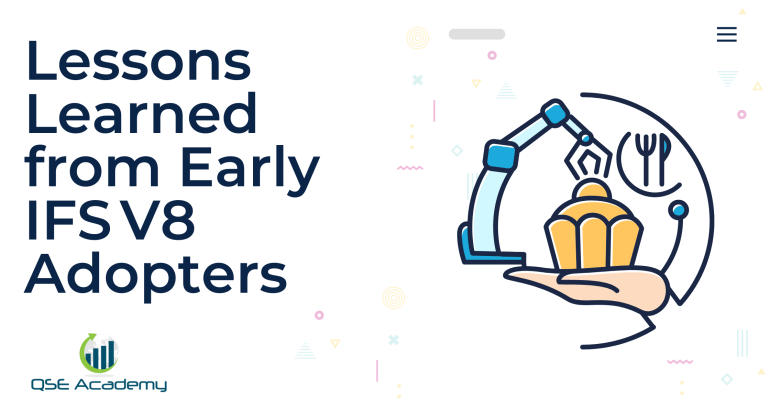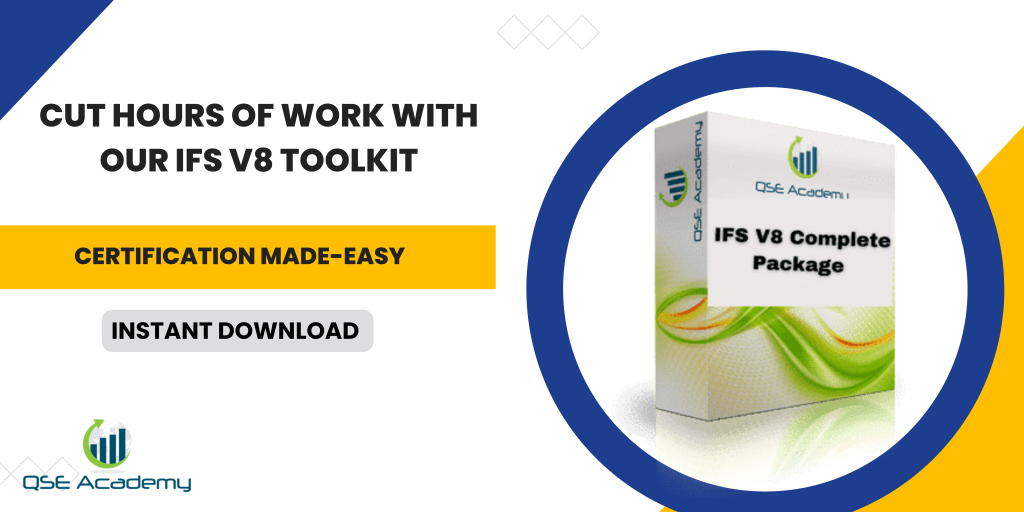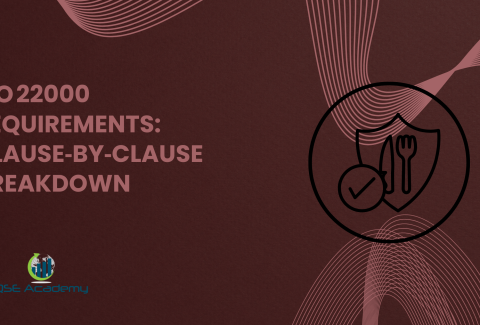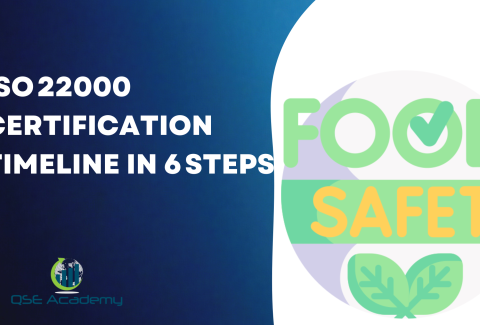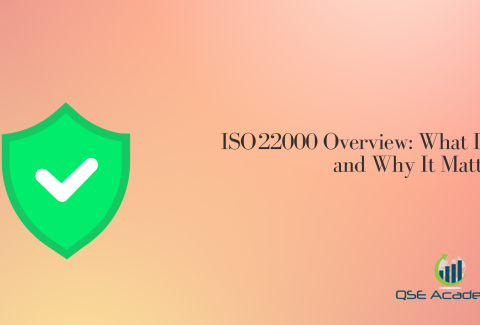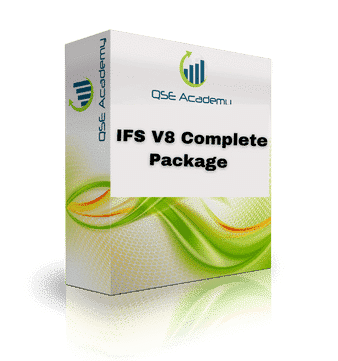Lessons Learned from Early IFS V8 Adopters
Last Updated on December 23, 2025 by Hafsa J.
What Early IFS V8 Adopters Can Teach the Rest of the Industry
Anytime a new version of a standard is released, there’s a learning curve — and IFS V8 has been no exception. Some companies moved quickly and went through certification early, while others chose to observe, wait, and adapt slowly. After supporting early adopters and reviewing their audit outcomes, patterns started appearing.
What’s interesting is that most issues weren’t about major nonconformities or missing programs. Instead, they were about interpretation, alignment, and showing the right level of evidence under the new expectations.
If you’re still preparing for IFS V8 or just beginning your transition, these lessons will save time and help you avoid preventable mistakes.
Lesson #1: Documentation Updates Were Underestimated (IFS V8 Documentation Gaps)
One of the most common comments early adopters shared was:
“We thought we only needed small updates — then the audit told us otherwise.”
A lot of organizations kept their IFS V7 structure and just inserted new terminology or added paragraphs. But auditors were looking for alignment at a deeper level — especially where wording changed intent.
Examples where gaps showed up:
- Food safety culture lacked measurable indicators
- Change management wasn’t clearly described
- Training requirements were referenced, but not evidenced
- Supplier controls didn’t match V8 expectations
A simple side-by-side clause comparison would have prevented most of these findings. Quick edits are tempting — but they rarely satisfy the auditor’s expectation under V8.
 Lesson #2: Internal Auditors Needed More Training Than Expected (IFS V8 Scoring & KO Requirements)
Lesson #2: Internal Auditors Needed More Training Than Expected (IFS V8 Scoring & KO Requirements)
Internal audits turned out to be a bigger challenge than anticipated. Plenty of companies used their old V7 audit tools and approaches — and that led to misalignment.
IF auditors must now understand:
- Updated KO interpretations
- Refined scoring system
- Evidence expectations beyond documents
One facility told me: “Our system was compliant — our scoring wasn’t.”
That alone pushed them from what would have been an A grade to a B.
Refresher training for internal auditors isn’t optional during this transition — it’s a risk-control measure.
Lesson #3: Food Safety Culture Must Be Demonstrated, Not Declared
Food safety culture was a major theme during early audits. Many companies had a policy and values statement — but no actual measurable activity to support it.
Auditors consistently looked for:
- Meeting minutes
- Training records
- Behavior observations
- KPIs
- Communication actions
What performed best were programs that connected culture to daily operations — not posters or announcements.
A helpful approach was linking performance reviews or coaching notes to culture behaviors. That showed the concept was lived, not just written.
Lesson #4: Operational Execution Was Scrutinized More Than Paperwork (IFS V8 Behavior-Based Evidence)
IFS V8 reinforced something many didn’t expect: operational interviews carried more weight than document reviews.
Auditors spent more time on:
- Production floor walkthroughs
- Staff questioning
- Live process validation
- Practical examples, not theoretical documentation
Some early adopters admitted their team was “audit-trained” — meaning staff could follow instructions but couldn’t explain the purpose behind controls.
Under V8, that gap became an immediate observation or NC.
Lesson #5: HACCP/HARPC Validation Needed Updating to Match Codex Revisions
HACCP wasn’t technically new, but expectations changed. Many early adopters discovered their risk logic was outdated — especially around allergens, supplier risk, and environmental controls.
Strong audit outcomes included:
- Updated decision trees
- Documented justification for CCPs/OPRPs
- Updated validation files
A recurring mistake? Copy-pasting old risk assessments instead of reviewing them against current hazards.
Lesson #6: Supplier Management Was a Major Weak Spot (IFS V8 Supplier Compliance Expectation)
Supplier control was one of the most frequent sources of NCs.
Common gaps:
- Supplier agreements didn’t include food fraud and food defense clauses
- Risk-based categorization wasn’t documented
- Ongoing performance monitoring was vague
One quality manager summed it up perfectly:
“We controlled our suppliers — but we couldn’t prove it.”
IFS V8 makes supplier evidence non-negotiable.
Lesson #7: Traceability and Recall Drills Needed Stronger Performance and Documentation
Early adopters learned that recall testing under V8 needs to be:
- Practical
- Measurable
- Repeatable
- Time-stamped
- Documented clearly
Auditors didn’t want rehearsed drills — they wanted realistic execution.
Facilities that used random product sampling instead of pre-selected examples performed significantly better.
Lesson #8: Change Management and Communication Needed More Structure
IFS V8 expects a clear process for how changes are assessed, approved, and communicated.
Weaknesses showed up when:
- Suppliers changed formulations
- Equipment was modified
- Packaging materials were updated
- Processes were altered without documentation
Strong performers used controlled change forms and required cross-department approval before implementation.
FAQs — Insights from Early IFS V8 Certification Audits
1. Were early V8 audits harder than expected?
Most companies felt the audit was fair — but deeper in verification and scoring consistency than V7.
2. What was the most common nonconformity?
Lack of alignment between documented system and practical execution — especially around culture and supplier oversight.
3. Did companies need new tools, or just better processes?
Mostly better alignment and execution. Only a few needed new systems.
Conclusion: Early Adopters Show the Path — Avoid Their Mistakes and Build on Their Wins
The good news? Early adopters proved the transition is manageable — as long as preparation is structured and evidence-based.
The biggest takeaway is clear:
IFS V8 rewards consistency, competency, and operational maturity — not just updated documents.
If you’d like help applying these lessons, the next step could be reviewing your documentation, refreshing internal audit tools, or using an IFS V8 transition checklist to confirm readiness.
Whether it’s ISO 9001, ISO 22000, or the cosmetics-focused ISO 22716, I’ve spent my career I’m not here to call myself an expert—I prefer “enthusiast” because I truly love what I do. When I’m not writing about standards, you’ll probably find me playing Piano 🎹, connecting with people, or diving into my next big project💫. I’m an engineer specialized in the food and agricultural industry
make ISO standards less intimidating and more approachable for everyone.
turning complex jargon into clear, actionable steps that businesses can actually use.
There’s something incredibly rewarding about helping people navigate food safety and quality management systems
in a way that feels simple, practical, and even enjoyable.
I have a Master’s in QHSE management and over 12 years of experience as a Quality Manager
I’ve helped more than 15 companies implement ISO 9001, ISO 22000, ISO 22716, GMP, and other standards
My clients include food producers, cosmetics manufacturers, laboratories, and service companies
I believe quality systems should be simple, useful, and efficient.

